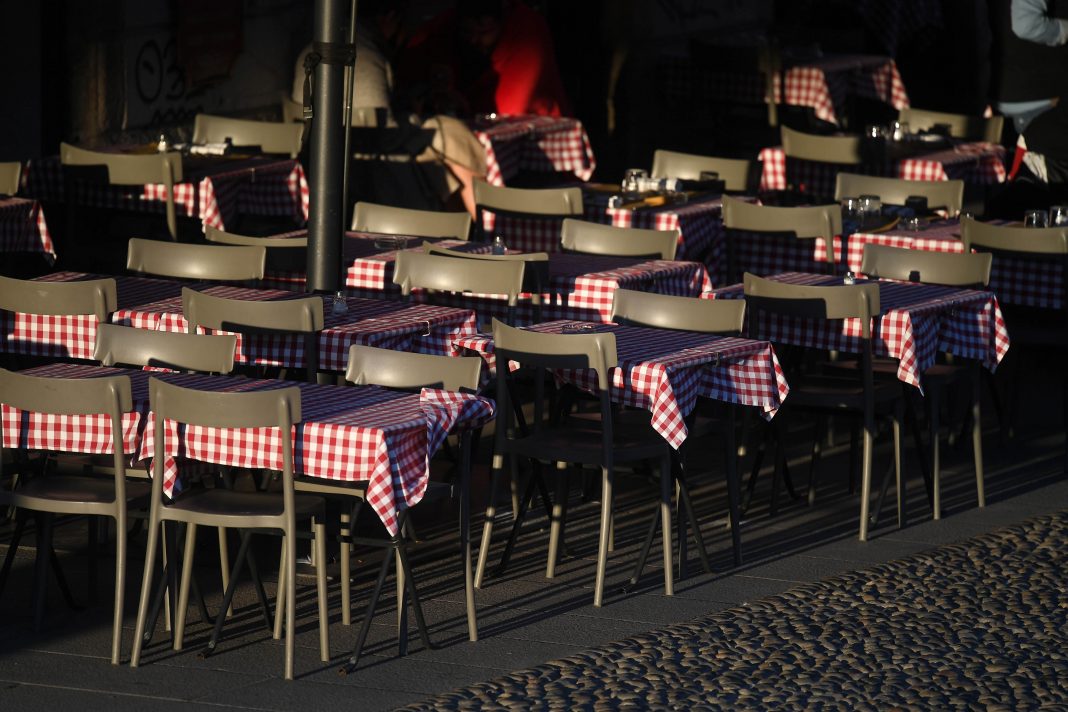Walking the Dog
The lockdown in Italy following the severest coronavirus outbreak after China has caused much consternation and confusion among ordinary citizens. A report by ABC, shows that people are not sure what to do about normal everyday things like going to the park, taking the kids to a playground, going to your bank or even walking the dog. Officially, the government-imposed restrictions are clear—residents must avoid moving out of their neighbourhoods except for health care, work or actions classified as “strict necessity” such as grocery shopping. To add to their woes, all Italians have to carry a form with them at all times explaining where they are going and why in case they are stopped by police who have the authority to issue fines and send people home if their explanations are not credible. The rapid spread of the disease has created chaos about what exactly is allowed and what isn’t. Only supermarkets, pharmacies, post offices and banks are open. All other retail stores and services are closed, as are restaurants, cafes, pubs and the ever-popular gelato shops. Even the places that are still open for business, like banks and post offices, get very few customers because the rising panic has forced people to stay home as much as possible. Even some factories involving agricultural production which were allowed to operate are facing threats of strikes by workers demanding better health protection. Restaurants that provide food for delivery can stay open but with strict instructions for workers to keep at least one metre from each other. In parks, joggers are allowed but no outdoor group activities. For families with young children who have been home from school for weeks already, the emergency measures are a test in creativity and patience.
Time to Die
Fans of the James Bond franchise are a disappointed lot. Thanks to the coronavirus scare, the premiere of the latest James Bond film, No Time to Die, was cancelled and the movie release date has been postponed indefinitely. Since then, more and more movie blockbusters are being cancelled or postponed as movie theatres, including in India, are shut as gatherings of large groups of people are banned. That’s affected the planned release of new films throughout March and April, including No Time to Die, Mulan, F9 and A Quiet Place Part 2. Movie cancellations affect more than just the balance sheets of major studios but with panic spreading, not many film fans are prepared to visit theatres and malls which are still open. Daniel Craig’s final outing as 007 was the first blockbuster to be pulled from theatres but it’s obvious that box-office takings in lucrative international markets will be badly hit. No Time to Die has been rescheduled for release in November. Similarly, the sequel Peter Rabbit 2 will not hit theatres till August while another eagerly awaited sequel, A Quiet Place Part II, starring Emily Blunt, due to open on March 20, is now postponed to an unspecified date. The hugely popular Fast and the Furious series 9, starring Vin Diesel, John Cena and Charlize Theron, has been pushed back an entire year to April 2021. Movie fans can hold off on their popcorn for a while.
Return to Reading
Here’s some unexpected benefits from the coronavirus outbreak that is keeping people all over the world at home, especially in those countries where severe restrictions have been put in place. Booksellers are seeing a surge in sales, where stores are still open, thanks to those in lockdown having plenty of time on their hands and recovering from the digital overload. Online stores are also seeing a spike in orders, for everything from food items to medicinal products, reading material and video games. In fact, telecommunications companies are struggling to cope with the demand for popular online video games, such as Fortnite, Call of Duty and Warzone, which pit players against one another in online battlefields. The latest version of Warzone, released last week, attracted six million players in its first 24 hours. “Were just getting started,” the company tweeted. As more people around the world are told to keep distance from one another, work remotely and, ideally, stay home, cabin fever could set in quick. Its no wonder then that some people are retreating to the world of books and the online gaming world as an escape from boredom.
Greeting Dilemma
With worries about catching the virus growing worldwide, there’s a big issue about what form of greeting can replace the traditional handshake. It can be a little awkward these days, as we saw with Germany’s Angela Merkel at a conference last week where her outstretched hand was rejected by some delegates. Other forms of greeting, especially in Europe and the Middle East, are kisses on both cheeks to bowing in Japan and Namaste in India, but the handshake is often recognised as the most ubiquitous greeting globally. So what is the social and business protocol when you want to stay healthy but don’t want to appear rude? In some corporate circles, the fist bump, the elbow bump, or a head nod and smile, is acceptable and on the increase. Some are even resorting to a footshake—tapping your shoes against someone else’s—Tanzanian President John Magufuli greeted politician Maalim Seif Sharif Hamad this way recently. A 2014 study suggests that a single handshake transfers 124 million live bacteria on average while the fist bump gave the lowest transmission. Led by Britain’s Prince Charles and Israel’s Benjamin Netanyahu, the popularity of namaste as a greeting has caught on globally—it reduces transmission to zero.


